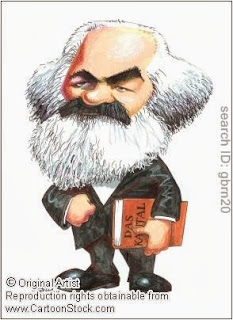The common thing between Socialism and Anarchism is that they are both Utopian. These two ideologies talk about societies that are hypothetical, a form of society that can be attained only in theory. And along with these two social theories are the means by which men tried to utilize to attain what these ideologies represent. Unfortunately, what is happening is that every time men would try to push for it, the means to attain it collapses in chaos and the goal is always left far from reach.
However, though the two share the same characteristic (both are unattainable), they differ on the means by which they are tried to be achieved. Socialism has this notion that a concentration of power to a few individuals or groups would bring the goal. On the other hand, Anarchism says that the goal can only be attained if the concentration of power is dissolved.
The differing views on the concentration of power is perhaps the only thing that makes Anarchism and Socialism distinct from each other. And that is the reason why, on the degree of appeal, socialism seems to always find frequent prevalence in societies. But why?
There is a very simple answer to that: Human Nature.
To attain an end, or to fulfill a scarcity, whatever it is (economic or not), a man would readily take the means which offers a lesser cost or the one that requires him a lesser sweat to attain the end or to fulfill the scarcity. Interestingly, power, when one has it, perfectly offers a solution to anyone's scarcity problem. When incentive comes with a lesser cost than any other means, men would stick to that.
Perhaps the single biggest showcase of power, or the concentration of it, can never be found elsewhere greater than that which is held by the State. Meanwhile, often government and state are interchangeably used. But this should not be. Government is just an object of the State. State is the colloidal mixture of numerous hierarchy of power in a society, government being the identifiable central part of the State. State is a combination of all institutionalized affairs of humans like education, justice, trading, services, religion, and all other activities dynamically synchronized by laws held by the government.
The power to control is monopolized through the utility of government. And this monopoly of power does not come about by non-humans. The power is held by humans over the rest, albeit just few of them who by fortunate seize of opportunities brought to themselves the power to control the society. This is the status quo or simply means "the existing state of affairs". Things will always be most favorable to the ones who control "the existing state of affairs".
Going back to the question why socialism seems to be more prevalent in societies, the answer is obvious. The adherence to the idea of socialism is rooted to the human nature in which their desires are tried to be fulfilled by opting means that require lesser efforts. Government is the easiest way for men to fulfill desires without much expenditure of one's own personal resources. If one has the control, all that is needed to be done is to hold on to this power at all costs. Unfortunately, men who already have in them the power to control the rest of the population do not just stick onto their power. They naturally try to expand it at every opportunity.
The maintenance of power comes by constantly appeasing the rest of the population. Government promises to deliver services the public wants. Through the course of time, the tendency is that the public, wants after wants, desires more from their government. This tendency, again displays the inherent character of humans in which their desires are tried to be fulfilled in a minimal effort. While government leaders, politicians and bureaucrats can maintain a cozy lifestyle funded mostly by taxes, the population (who pays taxes) will willingly play their part as the governed as long as they feel they get their exchange on the bargain - the pampering. There is a symbiotic relationship between the governed and the ones governing.
Anarchism on the other hand, is on a difficult situation. The dissolution of the concentration of power will not come as easy as the acquisition of it. Once power is held, it is already difficult to give it up. Power corrupts. "Absolute power corrupts absolutely" as Lord Acton put it.


No comments:
Post a Comment